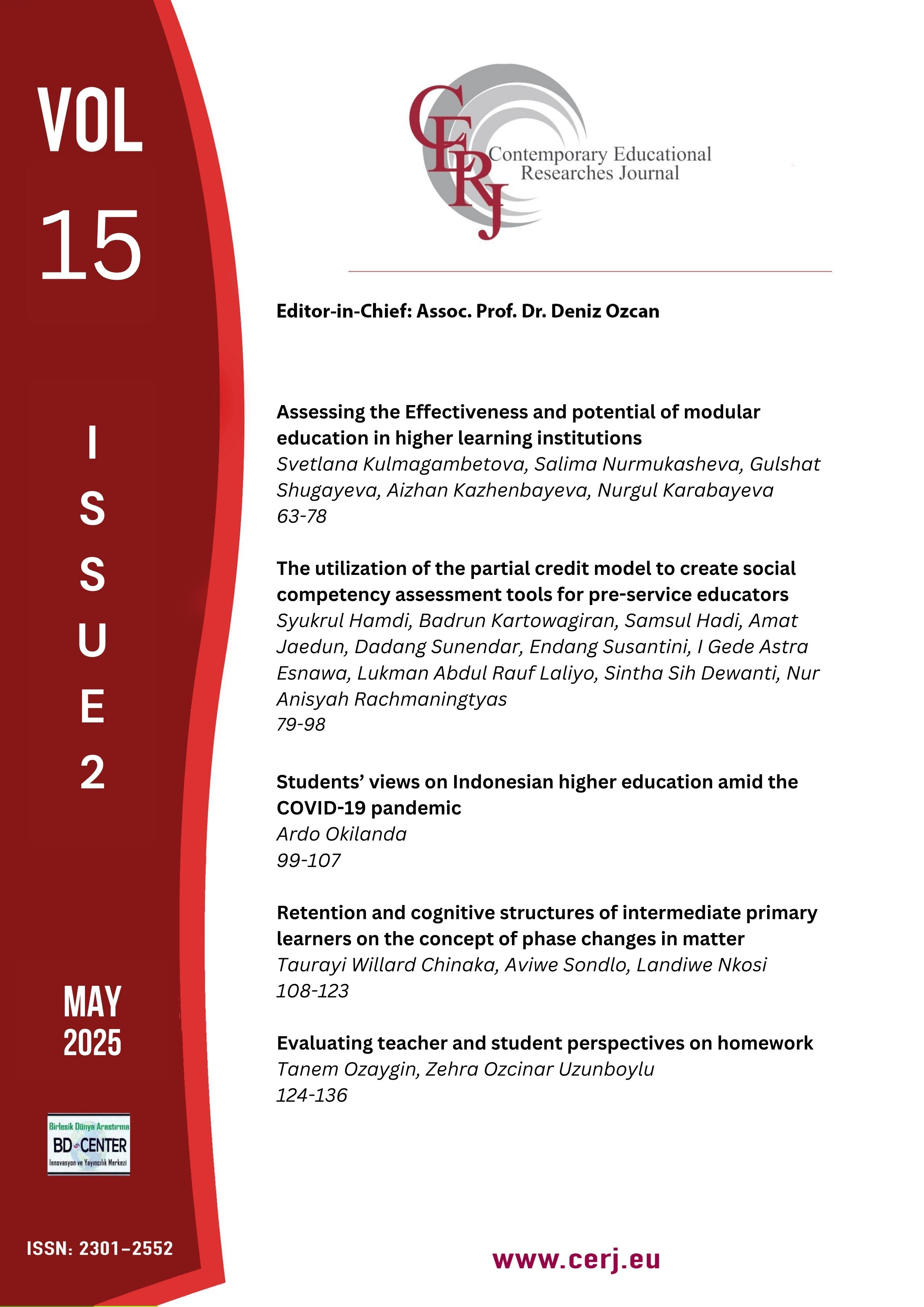Evaluating teacher and student perspectives on homework
Main Article Content
Abstract
This study explores primary school teachers’ and students’ perspectives on the practice of assigning homework, with a focus on perceptions of effectiveness, workload, and emotional impact. Despite its widespread use, homework remains a contested aspect of educational practice, and a gap exists in understanding how it is perceived by both educators and learners at the primary level. Addressing this gap, the study adopted a qualitative research design and involved 11 classroom teachers and 11 fifth-grade students. Data were collected through face-to-face interviews using semi-structured questions developed by the researcher, and analyzed using content analysis. Findings indicate that while most teachers supported assigning individual homework, they generally opposed group assignments, viewing them as impractical. In contrast, students expressed a preference for tasks that involved experiential learning and minimal writing. They were less supportive of individual assignments, especially those requiring extensive literacy. Teachers suggested that homework should take no more than one hour daily, whereas students favored a shorter duration of approximately twenty minutes. Students also reported predominantly negative emotions associated with homework. These findings highlight the need for reconsidering homework practices to better align with student needs and emotional well-being.
Keywords: Emotional response; experiential learning; homework; primary education; student perspective
Downloads
Article Details

This work is licensed under a Creative Commons Attribution-NonCommercial-NoDerivatives 4.0 International License.
Authors who publish with this journal agree to the following terms:
- Authors retain copyright and grant the journal right of first publication with the work simultaneously licensed under a Creative Commons Attribution License that allows others to share the work with an acknowledgement of the work's authorship and initial publication in this journal.
- Authors are able to enter into separate, additional contractual arrangements for the non-exclusive distribution of the journal's published version of the work (e.g., post it to an institutional repository or publish it in a book), with an acknowledgement of its initial publication in this journal.
- Authors are permitted and encouraged to post their work online (e.g., in institutional repositories or on their website) prior to and during the submission process, as it can lead to productive exchanges, as well as earlier and greater citation of published work (See The Effect of Open Access).
